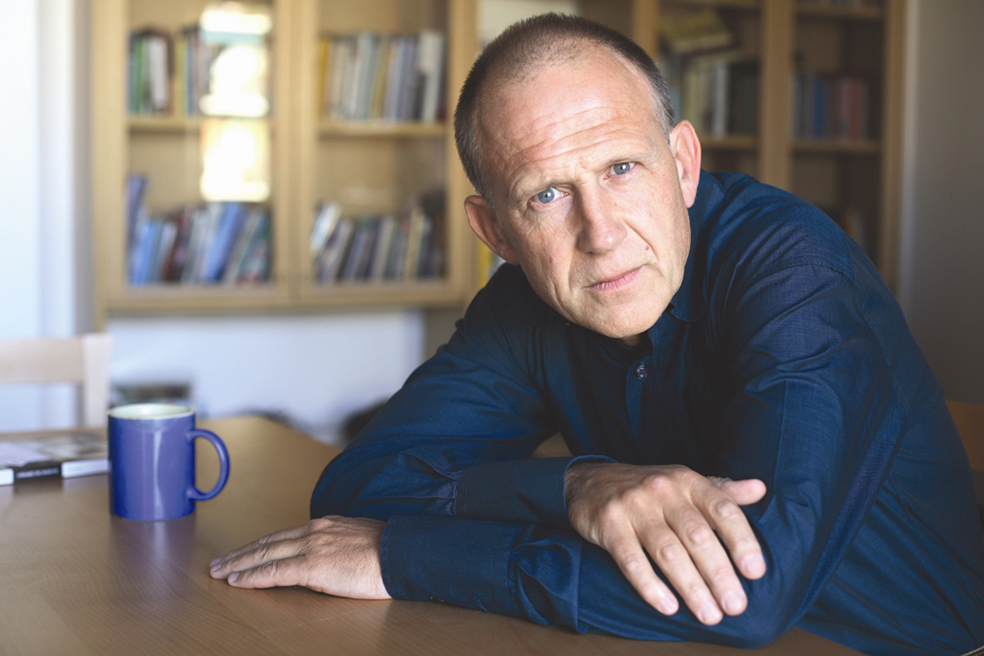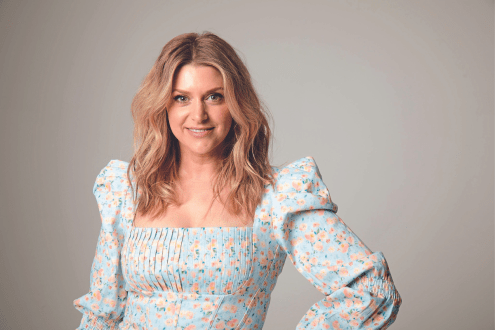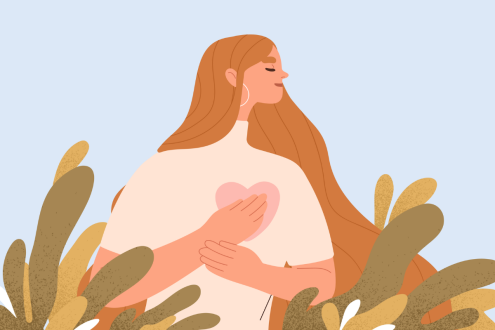June Shelf Help: Interview with Tim Parks
Alex Clark speaks to Tim Parks about his new book, Teach Us To Sit Still – an honest and personal look at the connection between the mind and body

You were prompted to explore the links between mind and body by a painful urological disorder that afflicted you, which defied diagnosis and treatment. Do we only look at life differently when things go wrong?
Absolutely. We have our plans. And as long as the body tags along and behaves as it should we hardly notice it at all. Same with the people around us: we take them for granted. Rationally we know our parents in their eighties are not going to be around forever, but we behave as if they are. Only when a pain begins do we start to remember we are animal and mortal. Even then it’s a while before we realise how mixed up the mental is with the physical. In my case – I had crippling abdominal pains, all kinds of urological problems – it was only when the medical profession was unable to diagnose them convincingly that I began to take on board how linked in they were with my lifestyle and mental state. Not that they weren’t real. Unfortunately they were. But it was the whole package that needed to be looked at.
Eventually, you started to wonder if there were alternatives – or additions – to conventional medicine that were worth looking into, didn’t you?
In desperation one tries this and that. If something is innocuous – shiatsu, acupuncture, meditation – it only makes sense to see if there are benefits. For example I found shiatsu extremely useful, while I got nothing from acupuncture. I didn’t solve my problems with Ayurvedic medicine, but I did get some fascinating insight from an Ayurvedic doctor. ‘You will never solve this problem,’ he told me, after about 20 minutes of conversation, ‘until you confront the contradiction at the basis of your psyche.’ Challenging stuff.
The book’s very funny on how you resisted a new way of thinking; at one point, you order a self-help book and write ‘It’s the kind of thing Tim Parks doesn’t do’. To what extent do we limit ourselves by thinking that there are things we just ‘don’t do’?
Enormously. It depends on the person, of course. Some people will try anything, even ridiculous things, even dangerous things. Others have invested everything in being rational. They will not try anything, however innocuous, unless there are volumes of ‘evidence-based medicine’ that it works. Even then they hesitate. At London’s Pain Centre at the Neurological Hospital in Great Ormond Street they tell me they get some of their best results with shiatsu, but it is not subsidised by the NHS because it is impossible to set up studies proving its efficacy. My attitude now is, if it’s not dangerous, I’ll at least see if it works. Many people are even afraid that something like this might work, since it would oblige them to rethink their ideas of who and what they are.
Can you tell us a bit about your first experiences of meditation?
Thanks to a rather bizarre book called A Headache In The Pelvis – the self-help book you mentioned earlier – I had some experience with a practice called Paradoxical Relaxation, which is basically controlled breathing and mental body scanning in the absence of verbal thought. Not unlike autogenous training. A friend told me that this practice was a crude form of meditation and I should learn how to do it properly. I resisted. Meditation was not part of my planned curriculum. But in the end the relaxation was so useful I decided to try a long, silent retreat. I suppose everybody expects something dramatic to happen, some dramatic confrontation with oneself. That is the kind of story we tell ourselves in the West. The story of how Tim Parks did this and that and went through this and that adventure. That’s why people go to India to do it, when you can perfectly well meditate in Neasden or Warrington. And in a way it was dramatic, but certainly not in the way I expected. Because the whole meditation practice is about leaving behind that kind of drama, leaving aside the self that is constantly telling itself about itself. I don’t want to go into detail because it’s so complex, but it was certainly a powerful and cathartic experience. It is difficult to leave the self behind, even for a few minutes, never mind a day or two. We are addicted to our selfhood.
You did experience breakthroughs, but you also describe how you thought you were ‘looking for a showdown with yourself’. What did you mean by that?
People always talk in terms of ‘discovering themselves’. I’ve notice that when I present the book, the presenter will say, ‘So, you went to a meditation retreat to discover yourself’. We assume that there is something there to be discovered and that the discovery will be harrowing but we will come back wiser and so on. But the breakthrough is realising how farcical and self regarding this is. In a sense that is the discovery, that the self is a straw tiger. There is nothing to be faced but one’s inflated notions of what is to be faced. I have been to many retreats since then. This is the real drama, to put drama behind you.
How has meditation – and learning to ‘sit still’ in the wider sense – helped you?
There is definitely a shift in perspective. One has access to an area of calmness that wasn’t there before. It becomes easier to defuse the kind of tensions that work and relationships throw up. Again this is both physical and mental. The body is more relaxed. The posture is easier. There is a little less empty anxious yearning. And when things do start to go wrong, you see it at once while you’re meditating. You can feel unhappiness, anger, fear, whatever on the skin. And you know you would do well to deal with it.
Teach Us To Sit Still by Tim Parks is published by Vintage at £7.99, ebook available. Find out more about Shelf Help here
Photograph: Basso Cannarsa








